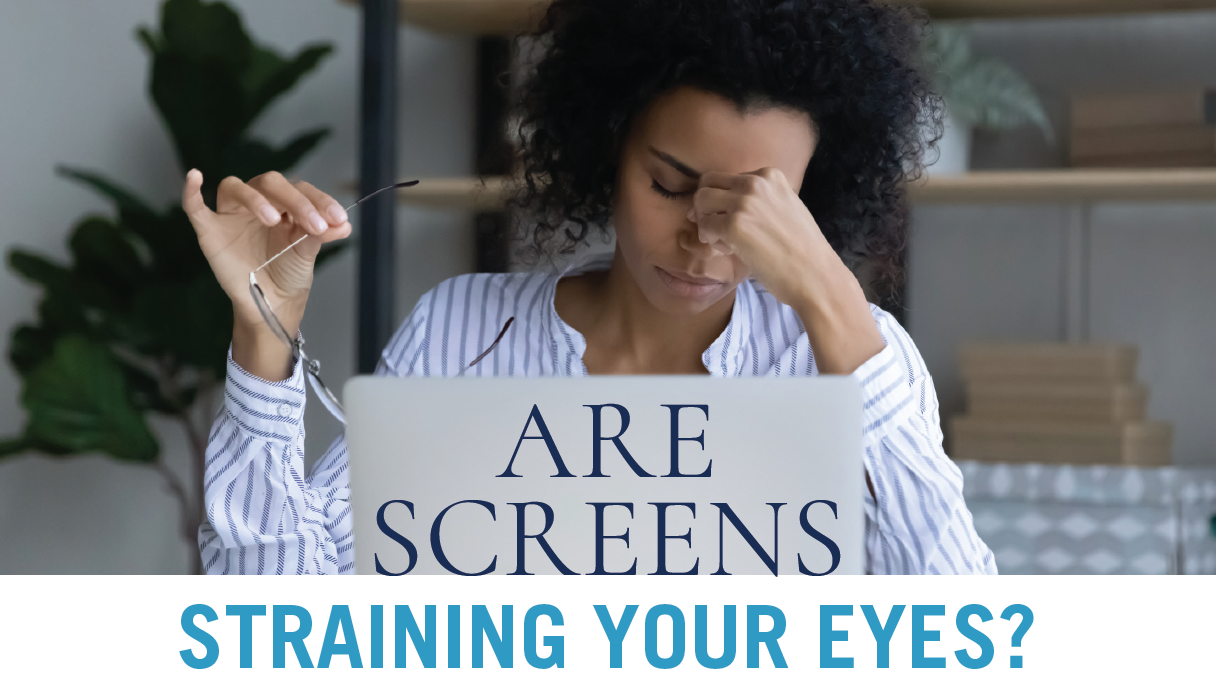
Working, learning and playing onscreen have led to a surge of symptoms.
“From kids to adults, we’re spending more time on devices than we did even five years ago,” says Matthew Marano, MD, Section Chief of Ophthalmology at Saint Barnabas Medical Center. “That’s how we work and play now, and I don’t see any end in sight.”
As a result, Dr. Marano and other eye specialists are seeing an increase in patients with complaints related to digital eyestrain. Data suggests that children may be most at risk because they often spend eight to 12 hours per day in front of a screen and are less likely to voice any complaints as soon as adults do.

Symptoms relating to eyestrain include:
- Dry eyes.
- Inflammation of the eyelids.
- Sore, burning or watery eyes.
- A feeling of sand in the eyes when blinking.
- Sensitivity to various lights, like sunlight or blue light.
- Eye aches that can also spread behind the ears.
- “Floaters” (black or gray specks in vision) that become more noticeable because the eyes are fatigued.
“If I handed you a two-pound weight and asked you to pick it up, you’d do it with no problem. But if I told you to hold it for two hours, it would be a different story,” Dr. Marano says.
“That’s the kind of strain we’re putting on our eyes.”
Preventive Measures
To avoid eyestrain, Dr. Marano suggests implementing the following practices:
- Take more breaks, both short and long. Every 20 minutes, take a 20-second break where you sit back and focus on an object at least 20 feet away. Incorporate additional breaks (15 minutes or longer), where you completely step away from screens, into your day as well.
- Blink more often and use artificial tears as needed to refresh your eyes.
- Stay hydrated. Keeping your body hydrated can help prevent common eyestrain side effects like dry eye. Room humidifiers can help too.
- Create a proper desk setup. Keep the recommended distance of 20 to 28 inches between your eyes and your screen, and consider computer enhancements like anti-glare screens.
- Adjust screen settings. Increase type size if needed and set the contrast and brightness of the screen at a comfortable level.
- Get a handle on your prescriptions. Wear the appropriate pair of corrective lenses for computer work. This prescription might be different from the prescription in your regular glasses, so check with your ophthalmologist.
- Pay attention to general health and wellness. Smoke irritates eyes, so avoid smoking or being around smoke. Children as well as adults should have their vision checked regularly. If you have symptoms of digital eyestrain, see an ophthalmologist as soon as you can.
For more information or to reach the Refractive Surgery Center at Barnabas Health Ambulatory Care Center, call 973.322.7185.